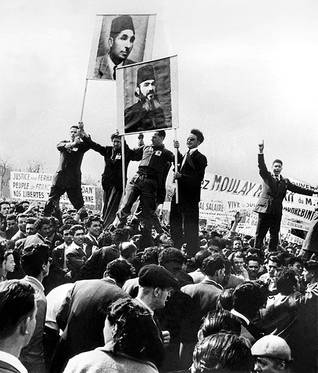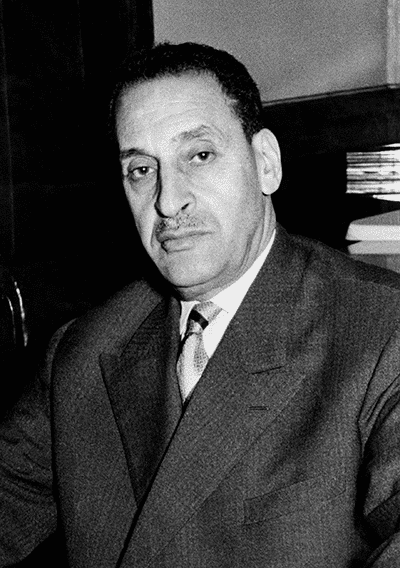
In response to colonialism, new resistance movements emerged, beginning in the 1920s. These movements comprised a diversity of ideological currents and emerged from different social classes. Their ideas on improving the position of the Algerian population ranged from reforms within the French order to complete independence as a new nation.
In contrast to the earlier uprisings that had taken place mostly in rural areas, these were urban movements. This had much to do with the paradox of the colonial system’s operation: while many Algerian Muslims were excluded, conscription in the French army, partial access to education, and employment opportunities in mainland France by a minority helped create a new sense of nationalism. This led to the emergence of social groups that were highly critical of colonial rule and became the core of the independence movement.
A significant part of the movement was formed by Algerian laborers who worked in France, where they came into contact with socialist and communist ideas and exchanged their views with French and other activists. This lay the foundation of the ultimately socialist orientation of the independent Algerian state after 1962. The North African Star (Étoile Nord-Africaine, ENA) was the first organized expression of the migrant labor movement.
Inspired by socialism, the ENA was founded in 1926 by Hadj Ali Abdelkader, grandson of the 19th-century resistance leader; one of its prominent members was Messali Hadj. As is clear from its name, the movement originally aimed to unify Algeria with Morocco and Tunisia’s French protectorates. Because of differences in these countries’ situations, where the French had never settled on a scale comparable to the Algerian case, a movement encompassing all of North Africa did not survive in later years.
From the beginning, Algerian nationalism was also shaped by its relationship to Islam, which was not only the religion of the majority but also a sort of badge distinguishing them from the European colonizers. Indeed the French themselves described the Algerian native population as ‘Muslims.’ As elsewhere in the Arab and Islamic world, a group of forerunners became convinced that Islam could be a counterforce to colonialism only if it devised responses to colonialism’s social and cultural impacts. In the 1940s they created the Association of Algerian Ulama (Association des Oulémas Algériens; the ulama were experts in Islamic doctrine).
The association did not claim independence but sought to strengthen the Arab-Islamic identity. Apart from the ‘moral decay’ that they considered the result of European norms and practices, they aimed to counter the widespread traditional practice of venerating local ‘holy men’ (marabouts) and their tombs. In contrast, the ulama promoted a return to the Islamic origins set out in the Koran and the Hadith (traditions of the Prophet Muhammad’s life). Given that most Algerians were illiterate and thus had no access to these sources, they invested heavily in education. Instead of simply maintaining Koran schools, the ulama promoted modern education forms, including subjects such as languages and mathematics.

Although the ulama did not call for an independent state, these activities laid the foundation for growing political awareness among broader social groups.
The formation of the Algerian People’s Party (Parti du Peuple Algerien, PPA) by Messali Hadj in 1937 became the clearest expression of France’s demand for total independence. This party was the successor of the banned Étoile Nord-Africaine, also founded by Messali Hadj. But also less radical demands for autonomy were made, as expressed by Ferhat Abbas.
During the war of independence, he headed the provisional government in Tunis and was, for some months, the first President of independent Algeria. His Islamic middle-class constituency ran into strong opposition from the colons. In May 1945, as World War II was drawing to a close, Algeria’s situation came to a boil. Anti-French riots broke out, to which the colonial army responded with the massacre of thousands of Algerians in Sétif and other cities.
Paris subsequently tried to relieve the pressure by promising reforms, but, at the same time, the colonial authorities made it practically impossible for Algerians to advance their claims to political expression. Elections were manipulated through fraud and intimidation to preserve the existing order, and the plea for armed resistance gained ground.

